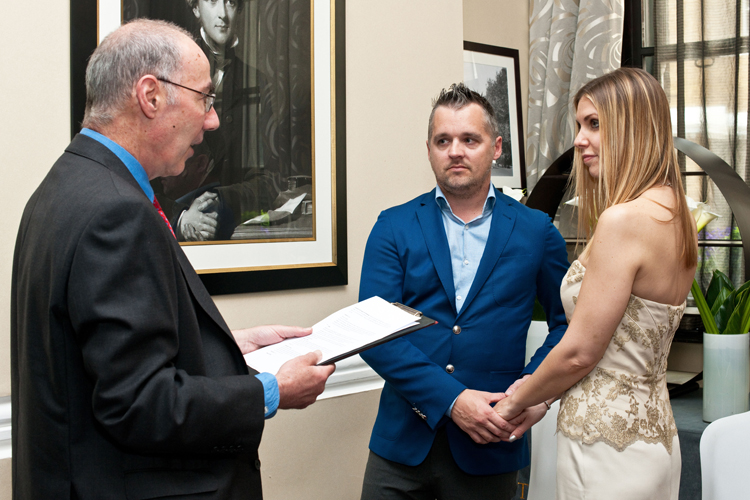
by Michael | Nov 20, 2023 | Blog
Exciting as it may be, planning your wedding can initially be bewildering.
Perhaps a little guidance at this point would be useful?
A good starting point would be to ensure that you are on the same page as your intended. So initial considerations would include date and venue of the ceremony, type of ceremony, budget and size of gathering.
That’s all before you bear in mind the entertainment, catering, dress, hair-do, make-up, photographers, flowers, planner and so on!
But this blog is about starting off, so we’ll limit ourselves to that alone, shall we!
Topics
Looking at those first points, I probably don’t need to point out that you may need to be willing to compromise with your intended (and/or anybody who is financing your event). You all need to communicate and not make assumptions. Keep each other in the picture. Don’t make alterations independently.
Budget
What you can spend is usually the tail that wags the dog!
Once you have agreed it, stick to the amount. You may have to juggle a bit (sometimes you can offset overspend, if there’s a saving or two down the line).
You’ll have to be clear how many people you invite (and to which parts of the day, if appropriate). That’s often a sticky one! Be flexible.
You may want to consider a DIY wedding, although hiring professional services can do such a lot for your peace of mind.
Date
The date is obviously important. You probably need to plan for at least a year in advance. Avoid major holidays and festivals (like Christmas or Valentine’s Day – or even the summer season). They can often be dearer than at other times.
.Ceremony type
You’ll need to agree on whether you want religion at all in your service, and, if so, to what extent? That will impact on booking a church (or whatever) and minister. If not, you will have to book registrars (either at their office or at certain venues). Alternatively, but in addition to registrars, you can go with a civil celebrant. That way, you can have a traditional or wacky ceremony (or mixture).
Venue
This is an area where you need to do your homework. You’ll have to visit the venue and discuss exactly what they can offer you. Most importantly, you must love the venue!
Practical Help
I cover this whole area in my book “Your Wedding Guide” (by Michael Gordon), which is still available on Amazon at a giveaway price (about £5)!
Or feel free to contact me for advice.
Photo’ Victor Shack
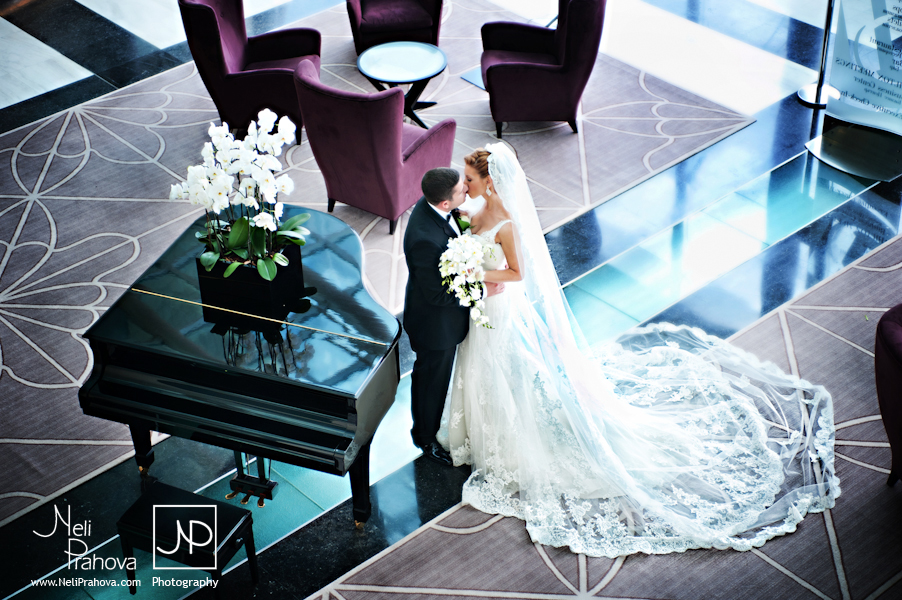
by Michael | Nov 6, 2023 | Blog
Music at weddings seems almost a given. The music adds to the atmosphere as well as covering potentially uncomfortable silences. It can be mood-changing and clearly has a lot of significance for a great many people.
So, when planning your wedding, you will want to consider the music quite carefully.
Will you want music for the ceremony and/or reception? Will you use a live band or a disco, or even a player operated by a family friend?
Live Music?
Having a live band can add considerably to the atmosphere. They can gauge and respond to their audience, and can set the tone. They can react to the unexpected (which can happen!).
All being well, you can rely on them, particularly if you know people that have used them. Or if you’ve heard them for yourselves.
The down side may be that they could be expensive. However, once you have agreed the programme (or style), you should be able to relax and get on with other things.
Nowadays, with the progress of technology, the quality of recorded music can be more than acceptable. Obviously, there may be issues, if machinery goes awry. The DJ may be able to play some music for you for the ceremony, if you want that. Just ensure you agree it all in advance.
Ceremony or Reception?
Opinions vary about music during the ceremony, but usually agree that you will want some quiet, middle-of-the-road music playing as the guests enter. If there’s a procession, stately or romantic music might be chosen. You’ll want to ensure that it lasts long enough. If there’s to be a certificate-signing, music would also be appropriate (probably, fairly restrained). Finally, you may well want something rousing, as the couple leave the room.
You can have traditional music (such as “Here Comes the Bride” or Pachelbel’s “Canon”) or a march, but there’s nothing to stop you choosing “your” song or, simply, a favourite piece of music.
.Music does not have to be religious at all (although it can be). Nor does it have to be serious. It can reflect the couple’s beliefs or personalities.
So, thought clearly needs to go into the music choice(s). The music can add such a lot. It can excite or relax, increase tension, bring a smile to faces – and, of course, cover a silence.
Most of all, music can add significantly to the character and atmosphere of your ceremony.
Let me help you with your ceremony as well as its music.
.
Photo: Nelly Prahova
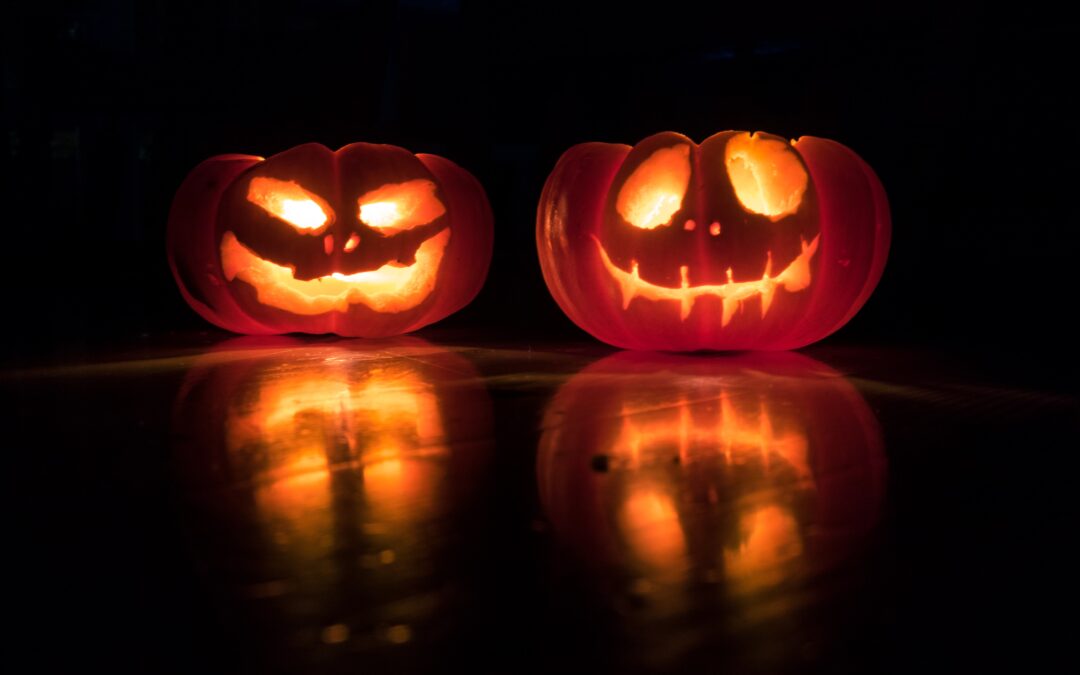
by Michael | Oct 30, 2023 | Blog
It must be difficult to be unaware of the fact, but Halloween is upon us!
Perhaps you received a “trick or treat” visit or two at the weekend? There may be more to come tonight.
Ignore it, if you wish, but Halloween has become a fixed part of our calendar.
Have you ever considered how it began? And how it became what it is today?
Beginnings
Halloween was originally an offshoot of a Celtic festival called Samhain. It actually dates back some 2,000 years. It marked the end of summer and the harvest. It also marked the onset of the cold, dark winter, as well as the boundary between the world of the living and that of the dead.
According to ancient Celtic belief, on the night of 31st October ghosts of their dead would revisit the world. So, to ward off any evil spirits that might be roaming around, large bonfires were lit across villages. The priests (Druids) would have led the celebrations. They also ensured that the glowing embers of the bonfire were used to relight the hearth fire of each house. This would protect and heat the people during the long, cold, dark winter months to come.
Changes
When the Christians arrived in Britain in the late 6th century, of course they brought their festivals with them. Among these was All Hallows Day (or All Saints’ Day. This commemorates Christian martyrs.
In the 8th century this festival was moved to 1st November, probably to replace the Celtic Samhain.
Up-to-date
What had been Samhain became “All-hallows-even” and, eventually, “Hallow Eve”. Then it became “Hallowe’en” and “Halloween”. Now, it tends to be children-orientated. Apple-bobbing is still quite popular and then, influenced by American traditions, “trick or treating” has really taken off. Dressing up ghoulishly has become customary too.
The pagan aspects of Halloween have never totally been replaced. Many still believe that the spirit and physical world can come into contact at this time, and magic holds sway.
I’ve never yet performed a Halloween ceremony, but I’m game to do so next year! Let’s have a chat!
Photo by David Menidrey on Unsplash
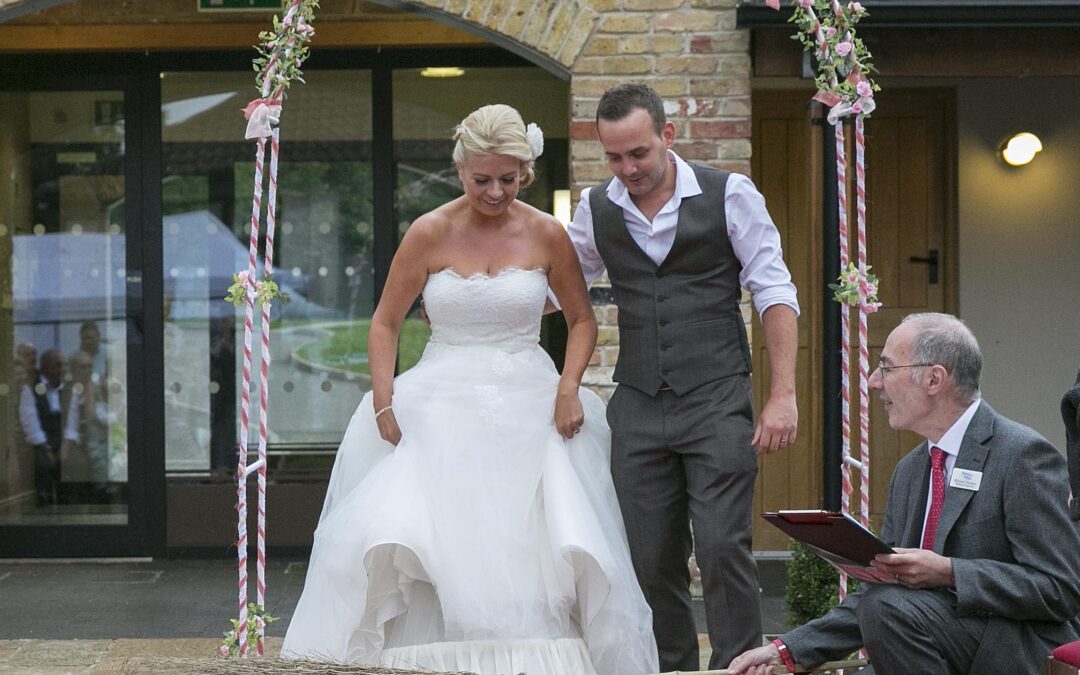
by Michael | Oct 23, 2023 | Blog
You may not have seen a civil celebrant in action. You may not even know anybody who has. How are you going to get the right celebrant, if you’re fishing while virtually blind-folded?
Where to Begin
If you can’t get a personal recommendation, then the internet is a likely place to start. You might enter “Civil Celebrant – Harrow”, if you want one local to me. “Vows That Wow” should come up, and you can have a look at my website.
Have a read and also listen to the material. See if you think you like me! Would you want to work with me? Would you feel happy working together with me? Could you trust me? Would you want me conducting what is probably the biggest day of your life?
Have a look at my review page. Am I delivering the sort of things that you want? Would I work the way you may have in mind? Am I professional? And friendly and obliging? Do I listen?
Find a couple of celebrants (so you can compare them) and make a list of questions to ask them. You may want their Ts & Cs, if these aren’t on the website. What exactly do they include? You will want to know how they work. You may want to know about any rehearsal. What experience (and training) does the celebrant have? is there a price guide?
If you like them, meet up with them, if you can (zoom or phone work but are second best). Judge their personality, as best you can. Will they be likely to work with the vision for your big day that you may already have? Can they give impartial advice?
How it Works
No two celebrants work the same way. Some may favour religious elements; some prefer spiritual and, of course, some insist on the secular only. (Some offer a mixture!) You can have a pagan (or part-pagan) ceremony, but you may opt for a fairly conventional service.
Your chats with your celebrant will doubtless cover the rituals you may include (such as handfasting or glass-smashing), music, ring blessings, vows, the tone of the ceremony, the couple’s “story”, the participants and the texts.
The bottom line is that this is YOUR day. The civil celebrant is there to facilitate and ensure that your wishes and desires are fulfilled. They should ensure that your expectations are met – and exceeded – and that the ceremony will be fabulous for all concerned.
I’d love to craft such a ceremony for you. Just contact me and we can have a chat.
photo: Soody Ahmed
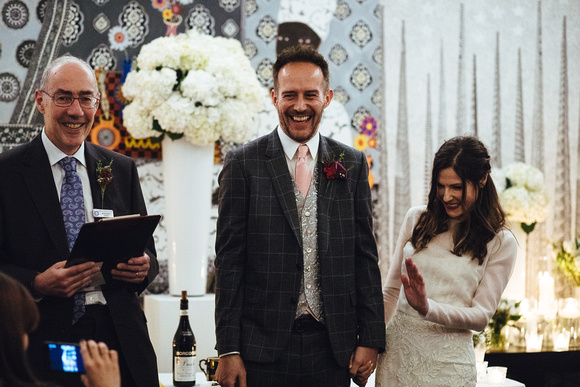
by Michael | Oct 17, 2023 | Blog
Humour and ceremonies don’t seem to go together, do they?
After all, a life-cycle ceremony is a major event. It can be a Wedding, a Vow Renewal, a Handfasting, a Naming Ceremony, a mixed-faith service, or whatever … If you choose (and go to the trouble and expense) to mark the occasion in public, then it means something to you. (And this also applies to a funeral.)
So you surely want the service to be meaningful and significant. You may well want it personalised, and there are many ways of doing that. Just ask your celebrant.
However, the tone and language can make the difference. What sort of register do you want: formal, informal, or something in between? Must the readings be spiritual? Could any be silly?!
People often believe that, if it’s a formal occasion, humour is inappropriate. If a couple are making their vows, then these have to be serious. I would argue that the tenor might well be solemn, but a bit of humour will simply reflect the good relationship between the couple. It will also lighten the proceedings, which the guests may well welcome too! And humour doesn’t have to equate with insincerity or levity.
Then, surely, even if you accept that some humour might fit in to a happy occasion, you can’t expect humour at a funeral, can you?
Well, it all depends, admittedly. If the deceased was a joker and had a good sense of humour, then they probably would have appreciated a funny story or two about them. If they went around with a smile on their face, then they probably would prefer that everybody remembers the good times, rather than dwells on the loss too much.
I have heard some quite wonderful tales of the deceased, whom I, of course, would never have met. They enabled me to form a picture of the departed as well as reminding the guests of shared good times. If you pardon the dark humour, the stories help put flesh on the bones!
So don’t go feeling that it’s “not the right thing” to include humour. Carefully used, it can have a place at any ceremony and will enhance it.
photo: lyndseygoddard.com





